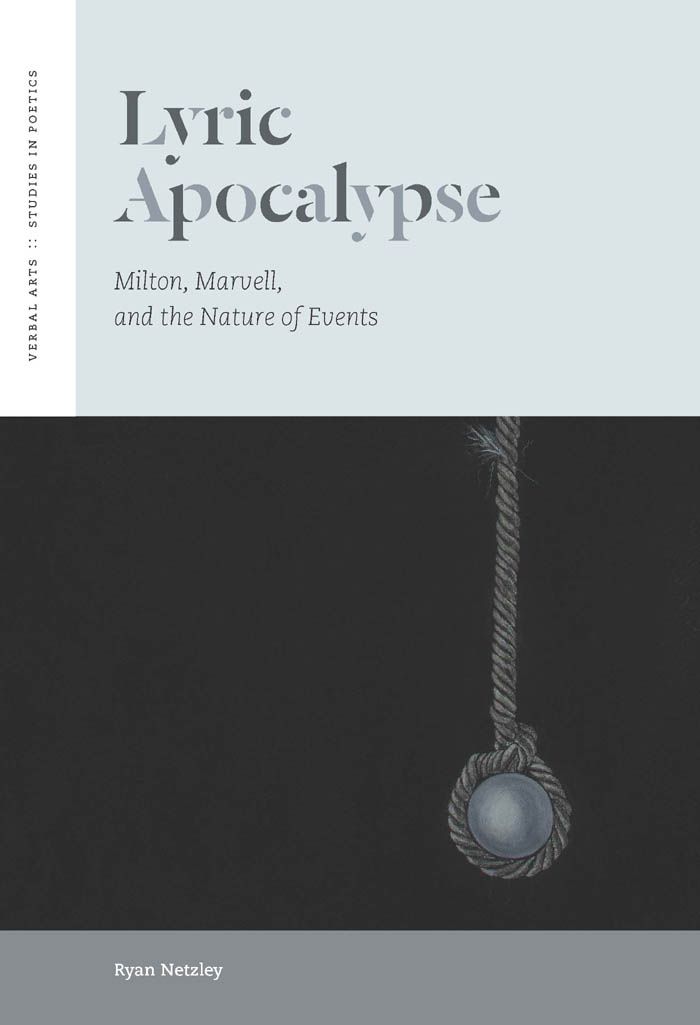Lyric Apocalypse
Milton, Marvell, and the Nature of Events

This book can be opened with

What’s new about the apocalypse? Revelation does not allow us to look back after the end and enumerate pivotal turning points. It happens in an immediate encounter with the transformatively new.
John Milton’s and Andrew Marvell’s lyrics attempt to render the experience of such an apocalyptic change in the present. In this respect they take seriously the Reformation’s insistence that eschatology is a historical phenomenon. Yet these poets are also reacting to the Regicide, and, as a result, their works explore very modern questions about the nature of events, what it means for a significant historical occasion to happen.
Lyric Apocalypse argues that Milton’s and Marvell’s lyrics challenge any retrospective understanding of events, including one built on a theory of revolution. Instead, these poems show that there is no “after” to the apocalypse, that if we are going to talk about change, we should do so in the present, when there is still time to do something about it. For both of these poets, lyric becomes a way to imagine an apocalyptic event that would be both hopeful and new.
“Lyric Apocalypse is a fine piece of work: timely, original, and persuasive—a powerful combination of theoretical argument with illuminating close reading. Netzely’s sensitivity to verbal and syntactical alternatives is remarkable."
This book explores both poets' views of apocalyptic change in the present.——The Chronicle of Higher Education
In presenting Milton and Marvell as acting on an apocalyptic impulse, which differs from traditional interpretations of their lyric poems, Netzley is suggesting new ways by which they can liberate readers from the tyranny of outcome-based reading with only a view to the future.—Renaissance and Reformation
“Netzley offers a theoretically sophisticated contemplation of the relationship between lyric and history. As he shows, lyric’s concern with the momentary and evental holds the potential to disrupt historical narrativization, which in the sixteenth and seventeenth centuries is also the potential to query the Providential and the prophetic. This book ought to be read by scholars of Milton and Marvell, and will be appreciated well beyond early modern studies for an approach to lyric poetry informed by the work of Agamben, Adorno, and Deleuze and Guattari.”
A book willfully out of tune with today’s anti-theoretical times, Ryan Netzley’s challenging new account of Renaissance lyric is animated throughout by the speculative hermeneutics of Badiou, Agamben, and Deleuze. What is more, Netzley sets off his eventual device in the context of a field—Milton studies—that has long since declared itself aloof from the encroachments of theory. Netzley’s book thus seems to this reviewer all the more necessary and important: scholars of Milton and Marvell, and no less historians of lyric, surely stand to learn something from it, if they will.—Renaissance Quarterly

